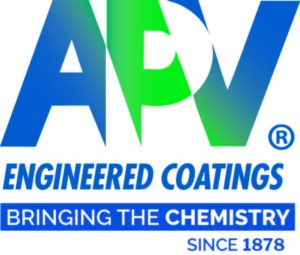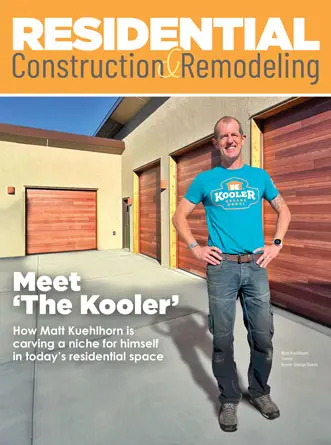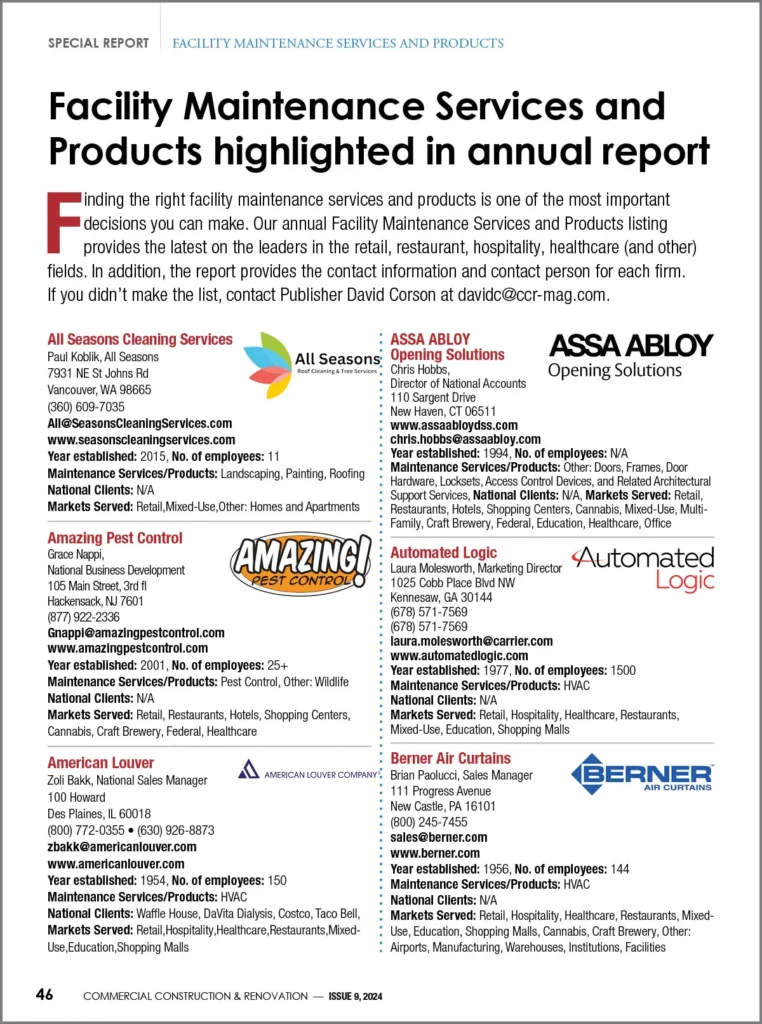A U.S. Department of Defense study found that AeroBarrier, a new single-step air sealing process, could be a highly effective and cost-effective means of sealing buildings undergoing renovation. The study, which examined the efficacy of the AeroBarrier process under varying conditions, found that the innovative approach to air sealing reduced building envelope leakage by as much as 80 percent at a cost that could be less than that of traditional sealing methods.
The study, conducted by UC Davis, Western Cooling Efficiency Center (WCEC) examined the results of using AeroBarrier technology to seal six different buildings located on three different U.S. military bases. Some buildings were divided into multiple sections for a total of 16 sealing events. In each event, the AeroBarrier technology reduced leakage by more than 30 percent and required less than a day for a two-man crew to complete.
“The test results are particularly impressive considering that the buildings used for this project were older structures, often in major states of disrepair. Nonetheless, the aerosol air sealing application proved effective at reducing leaks,” said Professor Mark Modera, Director of WCEC. “The results of this study clearly indicate that this new approach to envelope sealing is not only applicable for new structures but can be highly advantageous for use on renovation projects as well.”
A Game-Changing Approach
AeroBarrier replaces the labor-intensive multi-stage, multi-product processes used in manual air sealing today with a single-step computer-controlled sealing process that takes the guesswork and variability out of the results.
“Using AeroBarrier, builders can dial-in the specific level of tightness they want to achieve,” said Amit Gupta, president of Aeroseal, licensees of AeroBarrier technology. “The computerized sealing system emits a mist of sealant into the building interior that is automatically drawn to all the leaks. A technician monitors the ongoing results and stops the process once the targeted tightness level is reached. The process is so effective at finding and sealing leaks that it is the only method of envelope sealing that guarantees results.”
“Studies like the one conducted by the DOD show that AeroBarrier is suited for sealing buildings tighter and more reliably at a lower cost than manual methods – for an average sealing cost of between $1.00 and $1.50 per square foot of building floor space,” said Modera. “In addition, the process automatically provides verification of the entire sealing process, certifying the performance of the envelope.”
For more information on the Department of Defense study or AeroBarrier technology in general, visit www.aerobarrier.net or call (937) 428-9300.








 The 2024 virtual Men’s Round Table will be held Q4, 2024, date TBD.
The 2024 virtual Men’s Round Table will be held Q4, 2024, date TBD.













